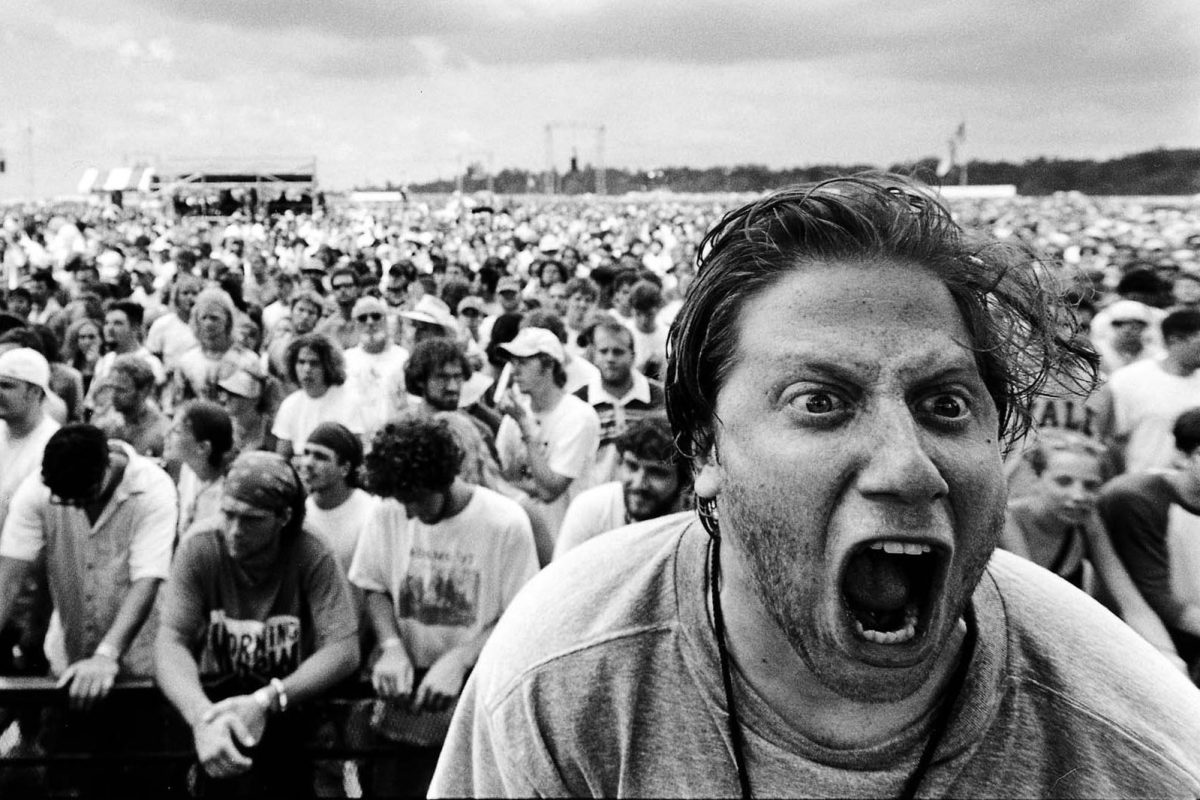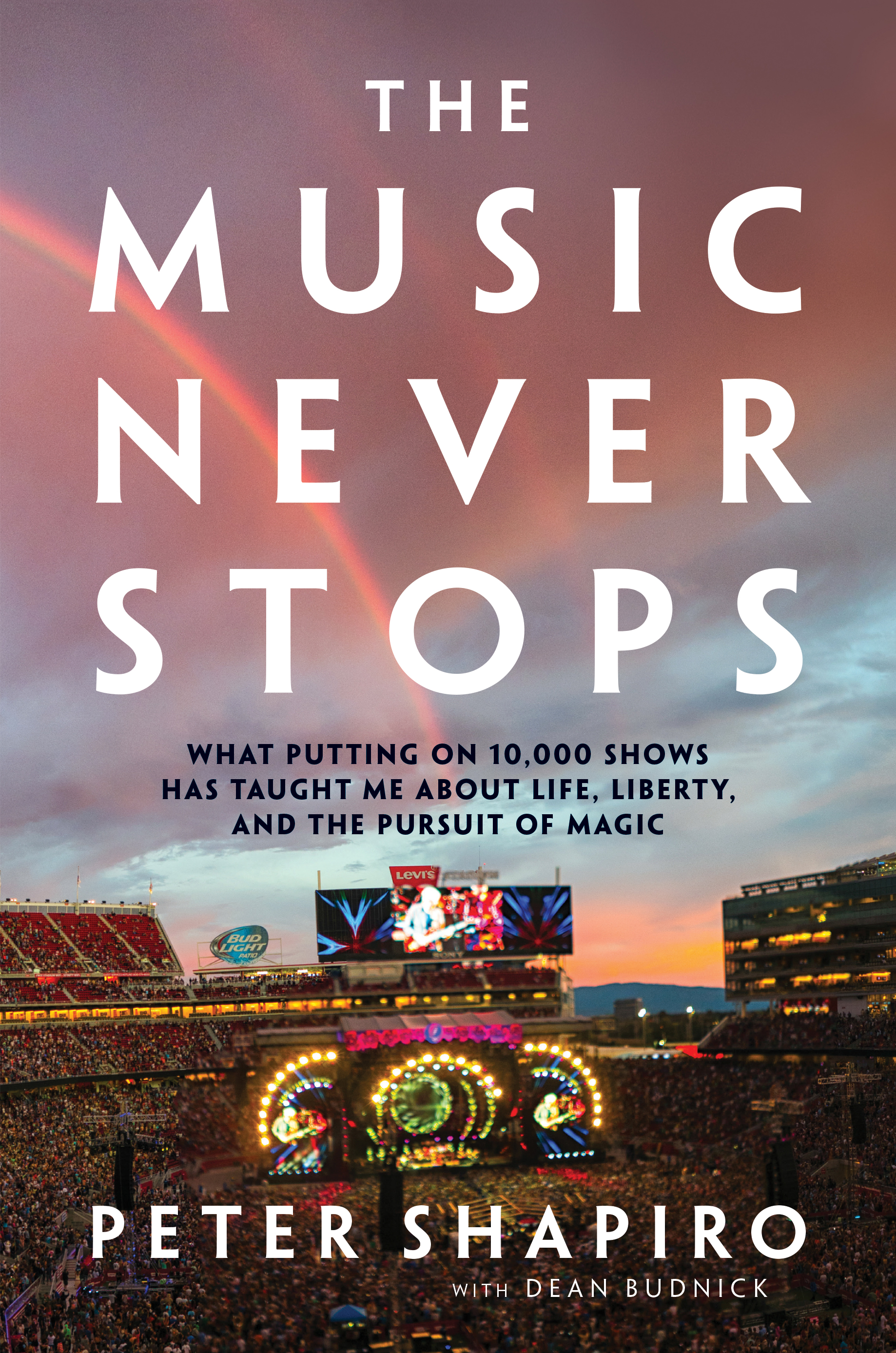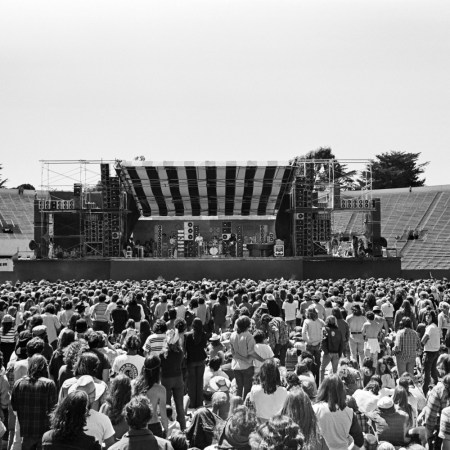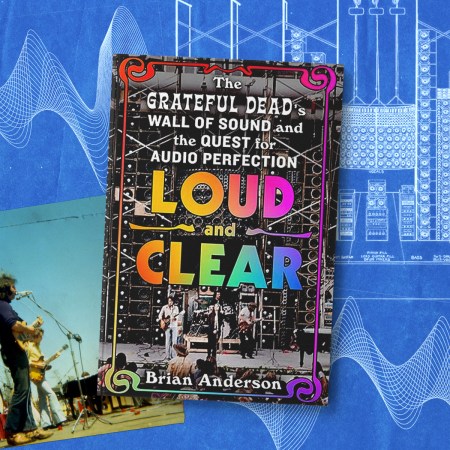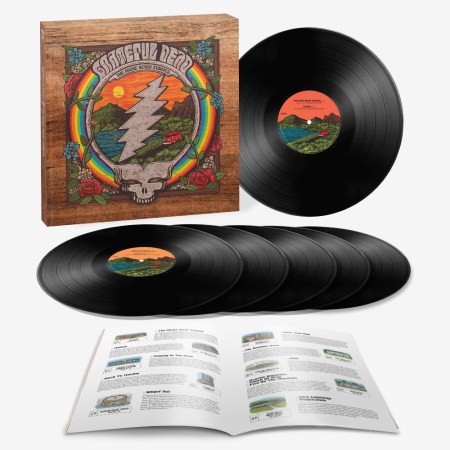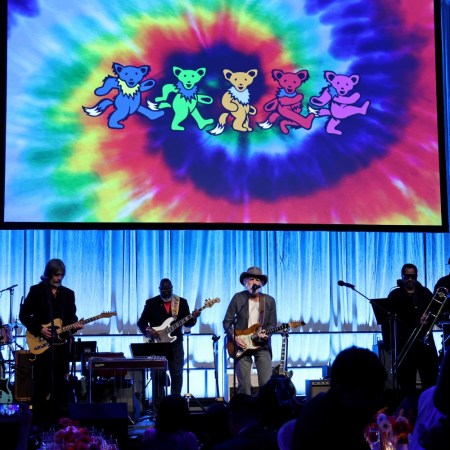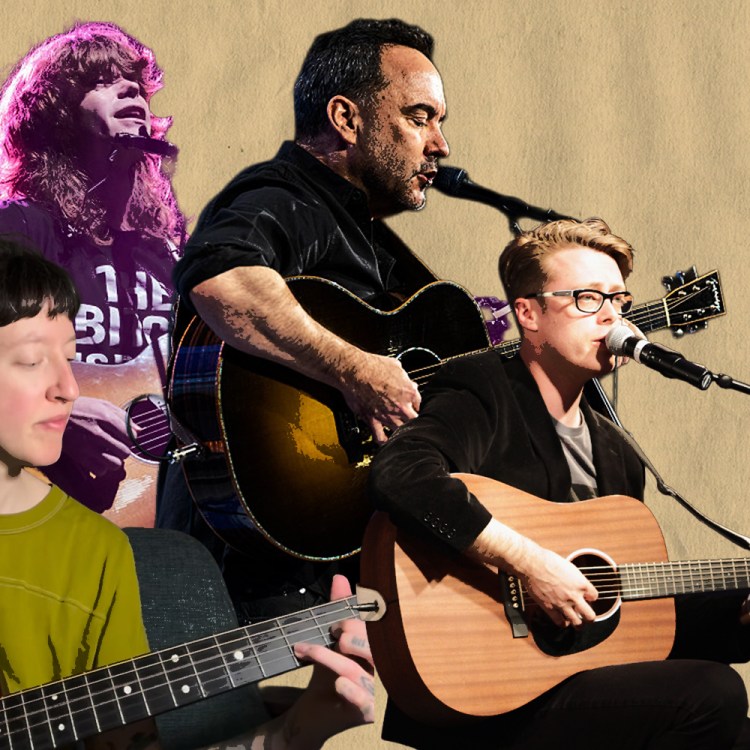A day after the Fourth of July in 2015 at Soldier Field in Chicago, the core four members of the Grateful Dead who carried on following the death of Jerry Garcia in 1995 — Bob Weir, Phil Lesh, Bill Kreutzmann and Mickey Hart — ended their time together as a working band during the final show of that summer’s Fare Thee Well tour.
Peter Shapiro, who had the trajectory of his life change after seeing the Dead as a film student at Northwestern in March of 1993 at the Rosemont Horizon in Rosemont, Illinois (about 25 miles away from the band’s final show in Chicago), had organized Fare Thee Well and was in attendance as the final encore of the night, “Attics of My Life,” closed out the tour and ended an era.
Shapiro chronicles his journey from the Rosemont Horizon in ’93 to Soldier Field in ’15 in his new book The Music Never Stops: What Putting on 10,000 Shows Has Taught Me About Life, Liberty, and the Pursuit of Magic, which was just released today. Co-authored with the assistance of longtime friend and Relix editor-in-chief Dean Budnick, The Music Never Stops chronicles how Shapiro, who owns the nationwide Brooklyn Bowl franchise as well as the Capitol Theatre in Port Chester, New York, and was the owner of the legendary jam band proving grounds Wetlands in NYC’s Tribeca, went from Grateful Dead follower to Grateful Dead organizer by sharing his story through the lens of 50 concerts, including acts ranging from U2 and Phish to The Roots and Jason Isbell, from the last three decades.
The book, which includes the story of Shapiro standing in front of Al Green’s limo to persuade him to reshoot a performance with the Dave Matthews Band as well as the 49-year-old’s account of watching Bono eating salad with his bare hands, is arranged chronologically and has a narrative arc but it is primarily Dead-centric and also contains a considerable amount of Shapiro’s insight into the post-Garcia jam band world.
“When Jerry died in August of ’95, I knew that people, kids like me, weren’t gonna just stop going to shows. They’d just start going to different kinds of shows,” Shapiro tells InsideHook. “The Dead world splintered up, but that led to the jam band world, in a weird way, getting a lift and a push because Jerry died. People went to southern rock or jazz or electronic or Americana or bluegrass. The birth and then growth of the jam band world really ties with Jerry’s passing. In ’95, Phish and some other jam bands were already pretty big, but they all got new support. I was there through it and it’s been my world for about 30 years of my life now.”
Ahead of the release of The Music Never Stops, we had a more lengthy talk with the modern-day Bill Graham to discuss what a long, strange trip it’s been. (And it ain’t over yet…)

InsideHook: How did you decide now was the time to take a look back at your life in the music business and write a book?
Peter Shapiro: I’m turning 50 in September and I went through a little health thing and just realized, “Holy shit, I’ve never written anything down. I should probably do it while I remember it.” I don’t know how I would do it in 20 years because I could barely remember it as it is. I have no diary, nothing, so if I had waited 20 more years, I’d be fucked. There are pros and cons of the Internet, but it helps you remember who played when. It took hundreds of phone calls, each one for hours, piecing it together with my memory and Dean’s memory and knowledge. If it wasn’t for him, I don’t know if I would’ve done it. I feel like I got it all out and now I can keep going. I don’t have to work to remember it all.
As a huge fan of the band, was the experience of putting on the Dead’s final show somewhat surreal?
I tried to think about it, but not think about it at the same time and instead drill into the execution and the ideas. If you think about it too much then you freak out — “Holy shit, I’m doing the reunion” — and stumble. The Dead created me in a weird way. The experience I had in ’93 led me to Wetlands and Wetlands led me to Brooklyn Bowl and the Capitol. It all led to me being able to do Fare Thee Well. The Dead didn’t try to, but they created this kid who became uniquely suited to bring them back together. It’s a weird circle. My path was because of them and that path led to me being able to do something really cool for them.
Do you feel like your personal path reached its high point in 2015 with the Fare Thee Well shows?
For me, that’ll never get beat. I thought it was the peak. The world is different since just 2015. It’s changed and I don’t even know if we could do it the same way. It’s just more crowded. Donald Trump. Podcasts. Streaming. TikTok. I don’t think I could even start Brooklyn Bowl now. It opened in 2009 and became a phenomenon but there were like 10 big TV shows in 2009. There are 200 now and 200 big podcasts and there are still movies and books. There’s just more flying around now. It’s harder.
Was Fare Thee Well more enjoyable for you as a fan or as a professional?
I loved the music and the shows. That never fades. The music of the Dead never bores. I just love it. That’s the fun part. The coordinating, setting up and producing during the day was not as fun. To do what I do well, the details matter, even the small stuff. I’ve learned everything impacts everything. There are so many elements. Whether it’s 50 people or 50,000, you gotta book the band and the venue, announce and market the show and sell the tickets. It’s stressful, but you don’t get the fun part without the work.
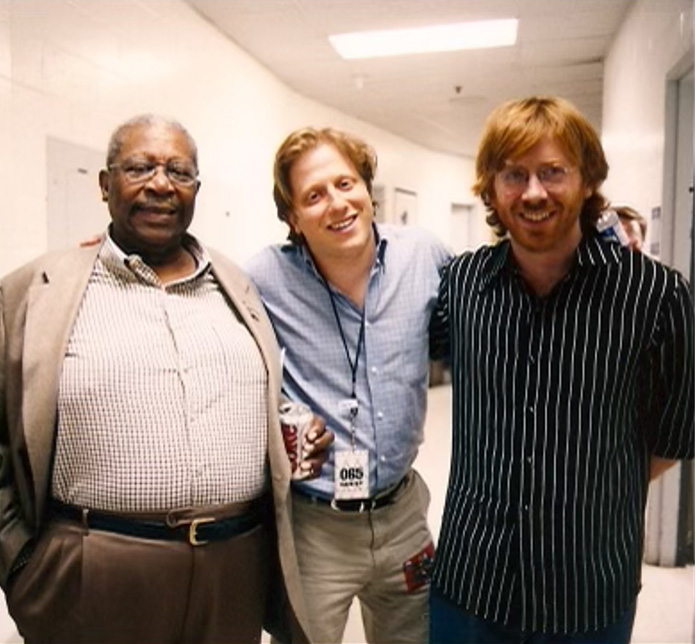
Was it bittersweet creating something you knew was going to be an ending for a band you love?
Fare Thee Well was going to be an end and it ended up being a new beginning. Dead and Co started out of that. It’s like the music itself. It’s improvisation and you don’t know exactly where it’s gonna go, but you gotta hold on to it. This whole journey is like a long jam. It’s got peaks and valleys and curves. I try to approach it like like a musician. You enter one sequence of a song and then you come out in another part and then you go into the next song without stopping. I’m kind of going in and out. I’m glad I got at least part of it written down.
Has anything had as big an impact on your life as going to that Grateful Dead show in 1993?
Having kids, but as a professional, that was formative stuff. That moment set me on this path. I do believe that. Nothing else to date has had that dramatic of an impact and probably nothing will. Fare Thee Well will be the biggest thing I ever do, but I’m cool with it. I don’t think you can do bigger. I feel lucky because I knew when I was putting it on that it’d be great for me for the rest of my life if it went well. But if it didn’t, if anything fucked up, it would be bad because you can’t fix a memory. That can’t be changed. Thank God it went so well.
This article appeared in an InsideHook newsletter. Sign up for free to get more on travel, wellness, style, drinking, and culture.
